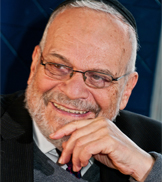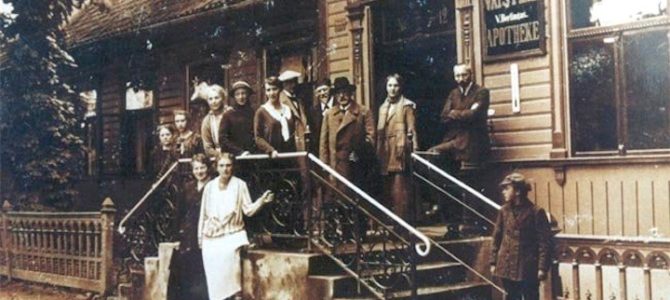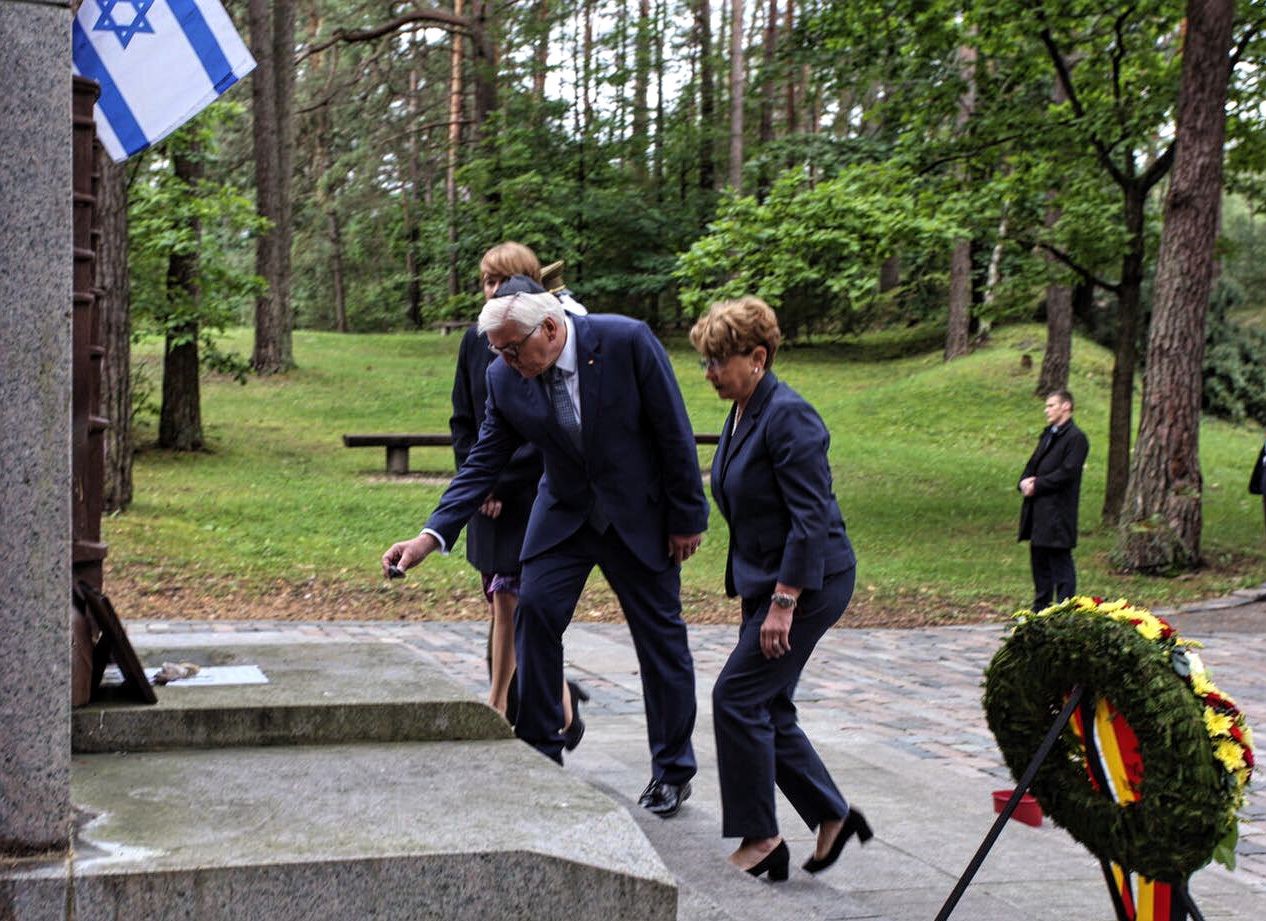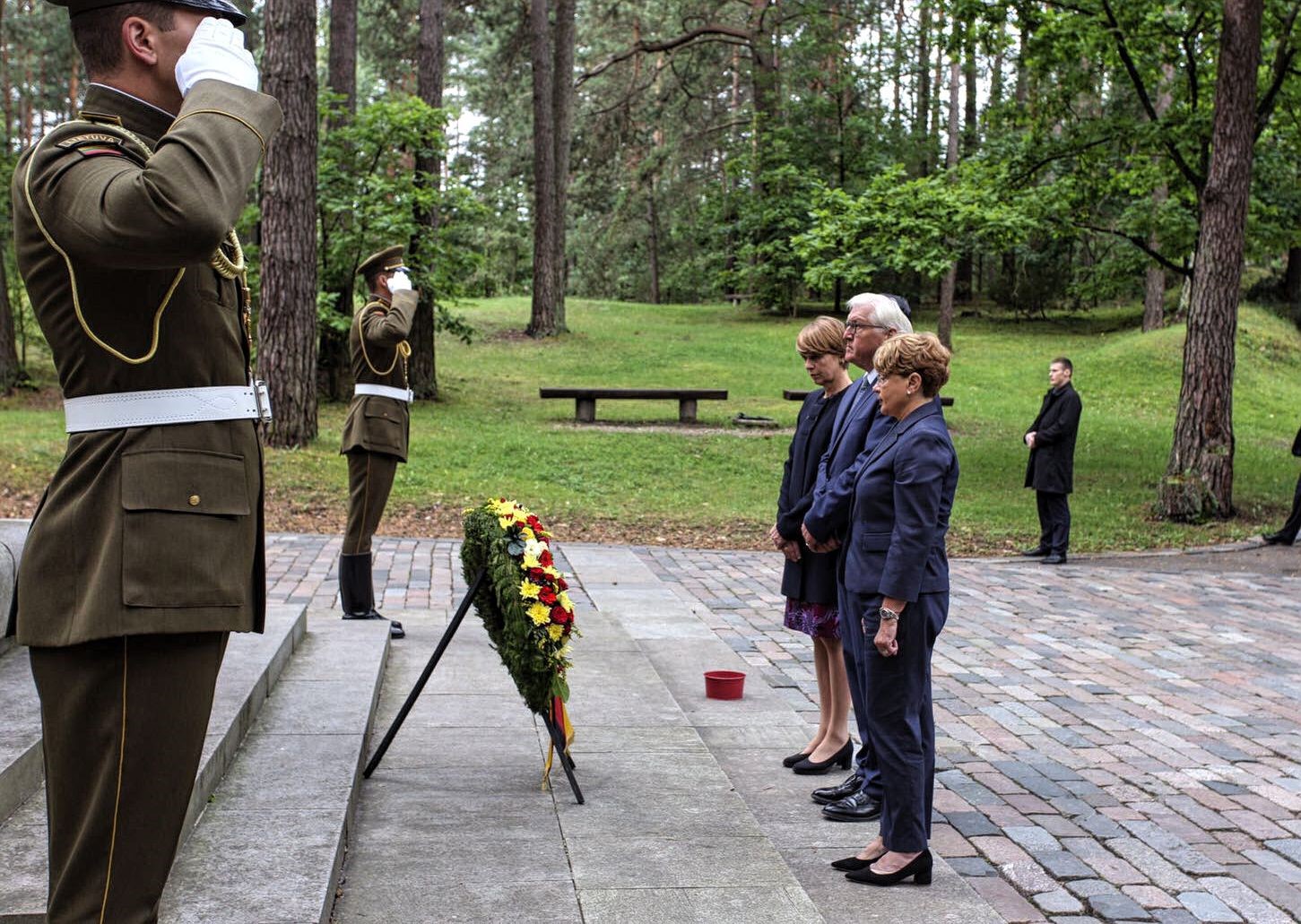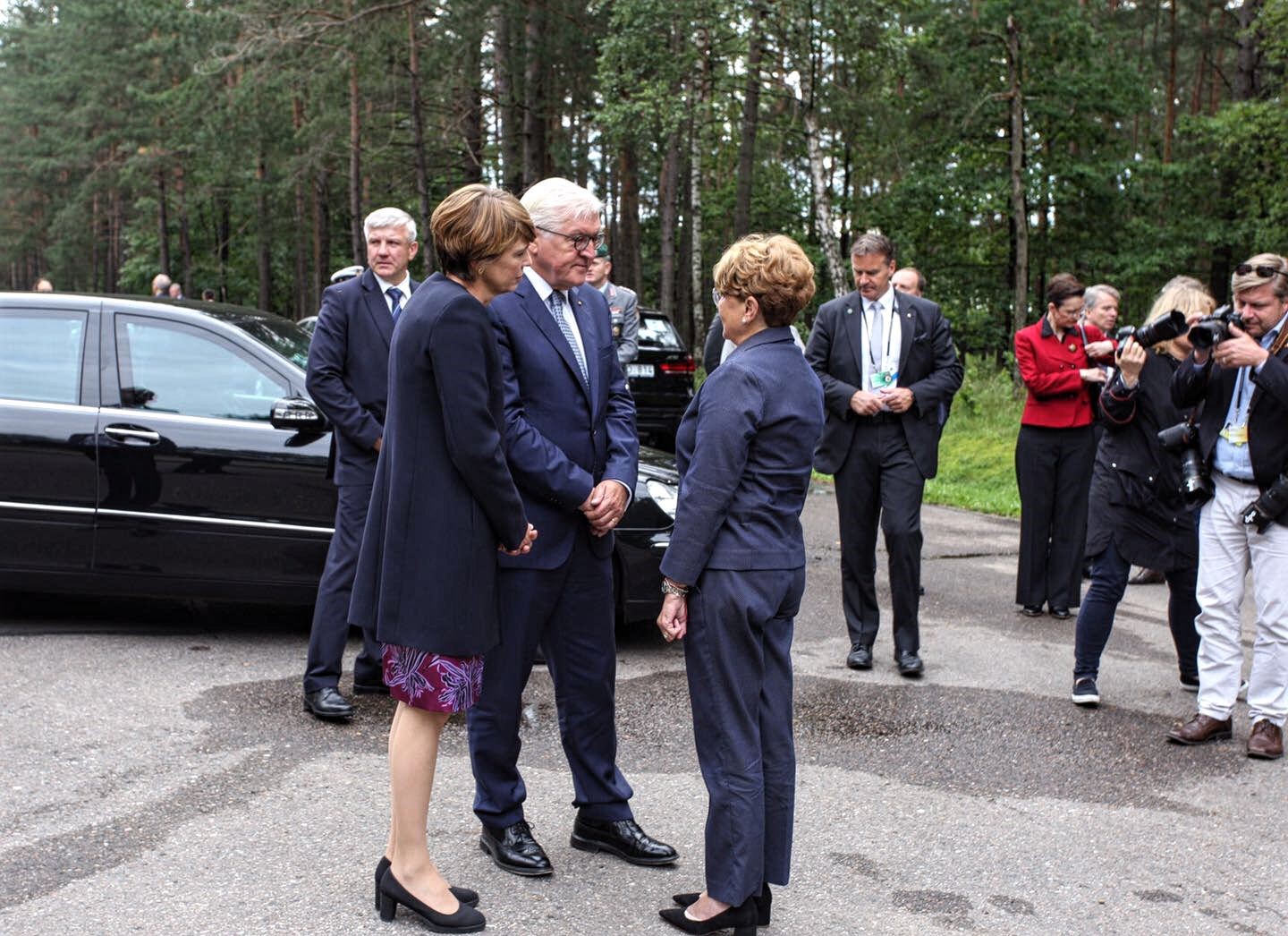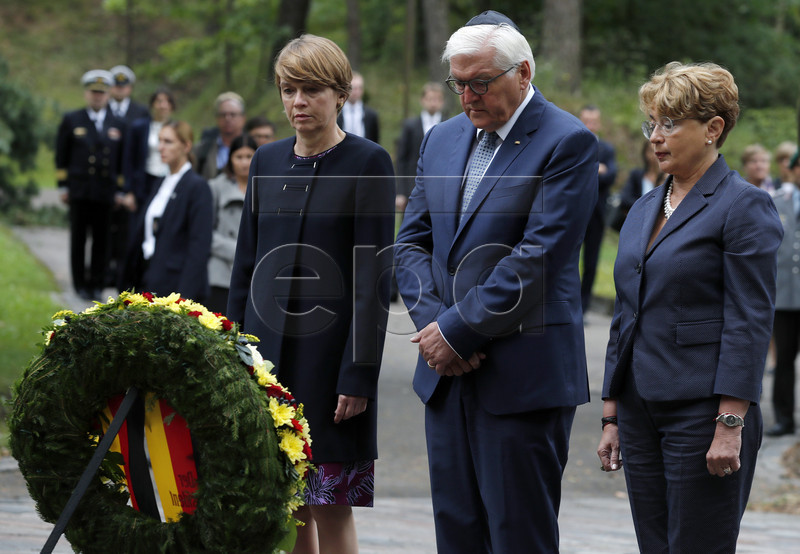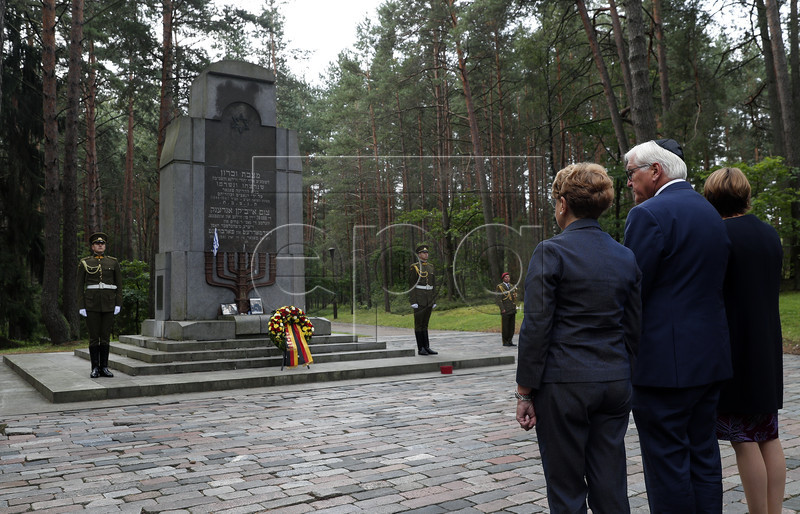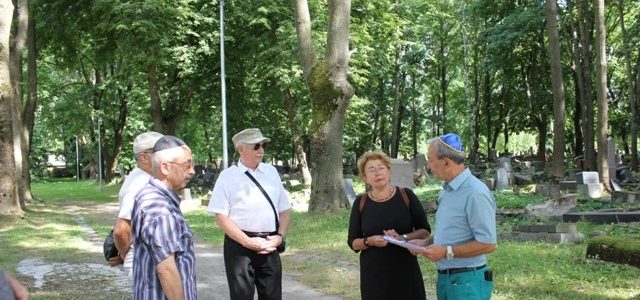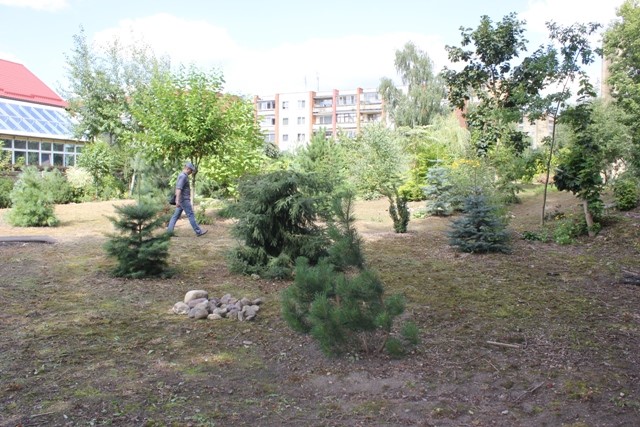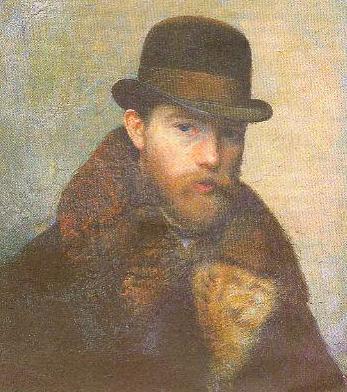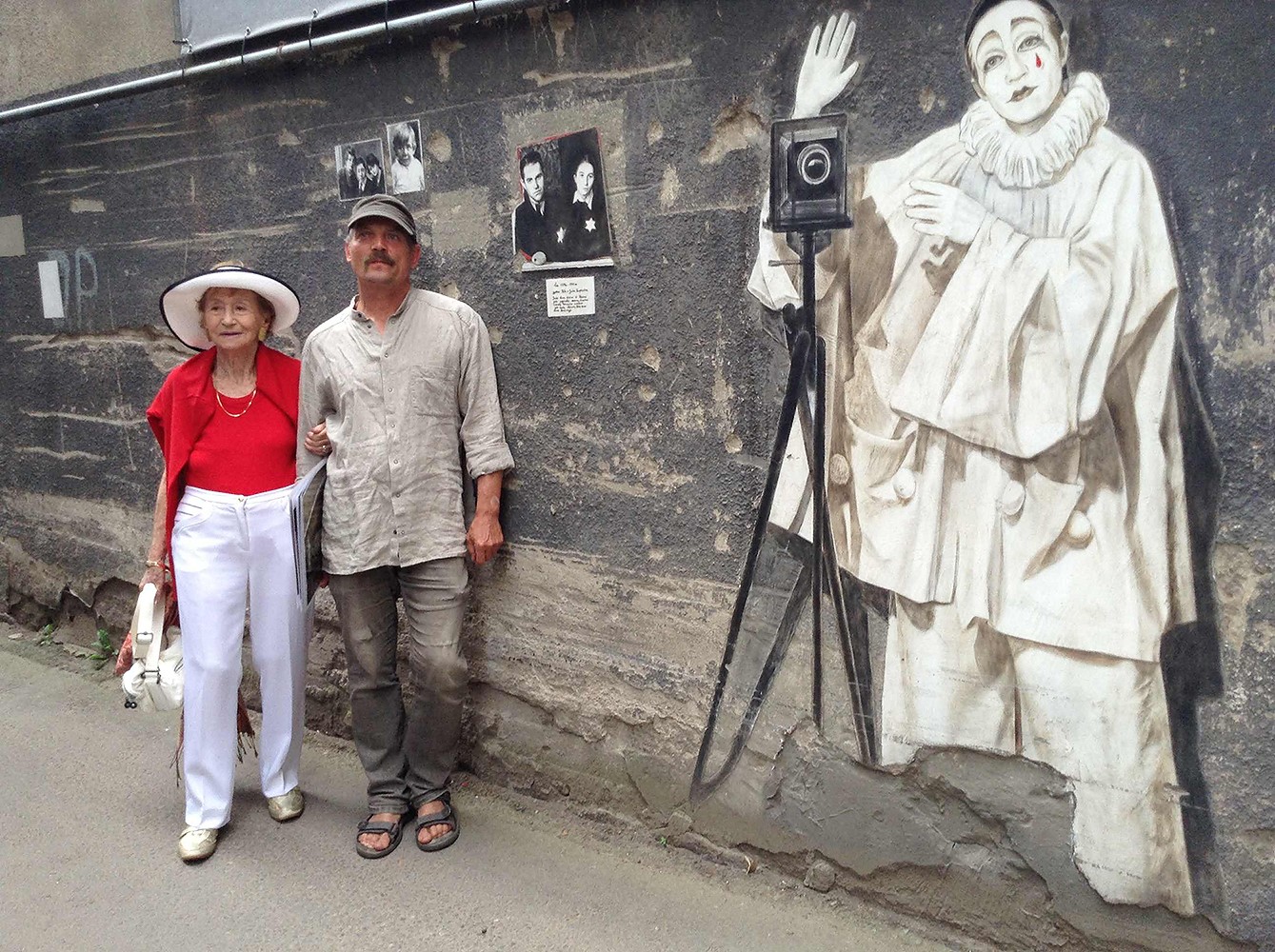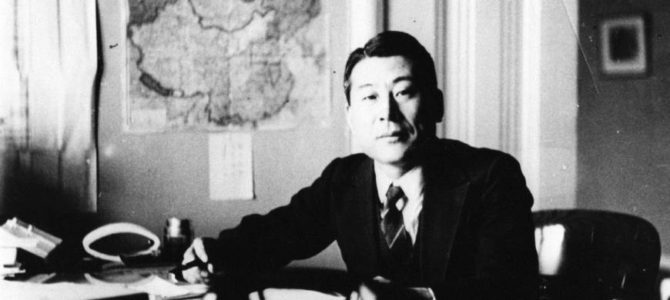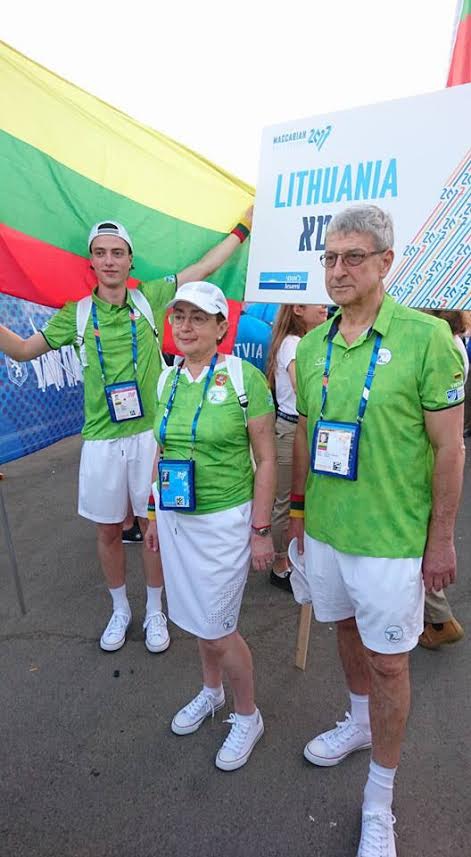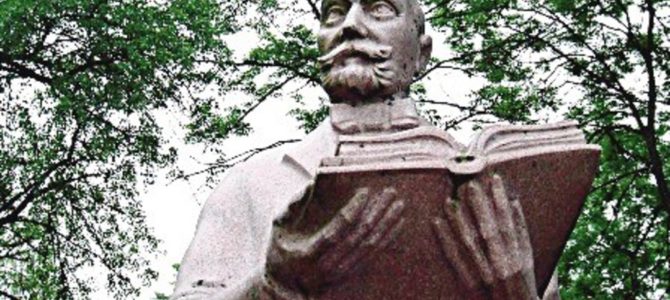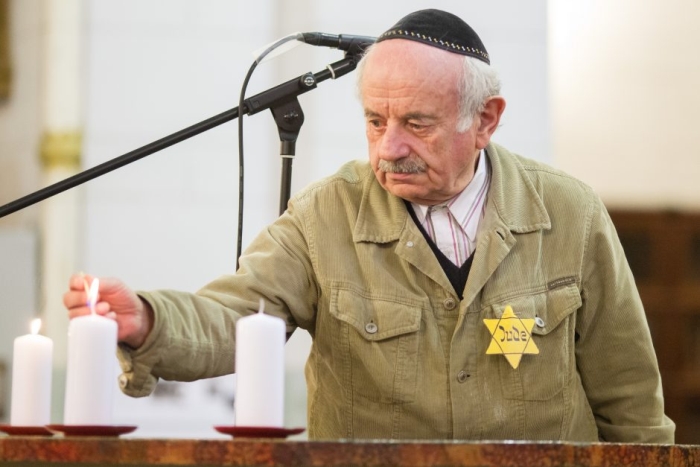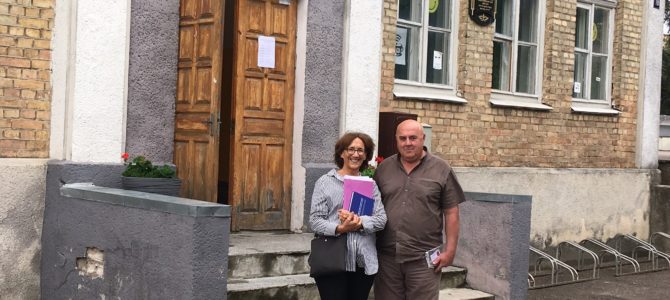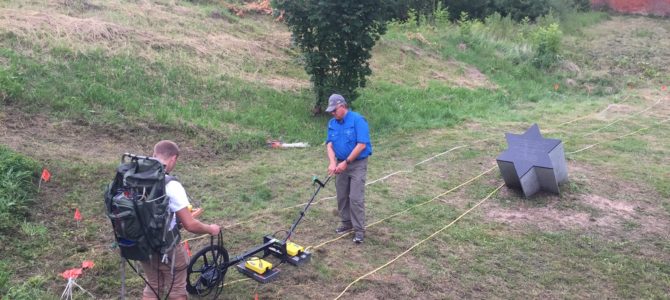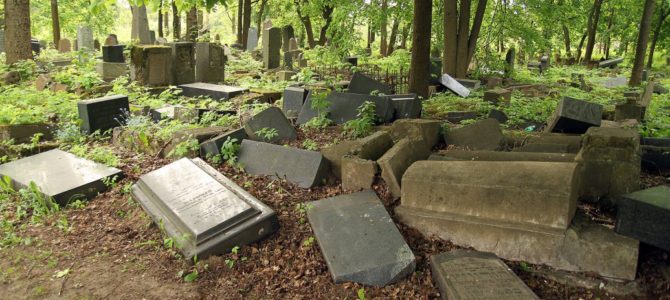
Yesterday was a strange day. As if by prior agreement, Jewish residents of Kaunas and Vilnius called to ask the opinion of the largest Jewish religious community in Lithuania, the Vilnius religious community about “a botanical garden being built” in the Radvilėnai Cemetery in Kaunas.
I was caught by surprise and took a look on the all-powerful facebook. Actually, saplings and flowers are being planted in the cemetery, a sprinkler system has been set up and there is even a garbage dumpster on site.
For Jews cemeteries are a place of extraordinary respect and commemoration. This Jewish ethical position has been followed for centuries. This reminded me of the spiritual Holocaust which came in Soviet times, when Jewish, Christian and Orthodox cemeteries were “beautified” and “put to cultural use” as parks with fountains and benches for relaxing and reading Pravda.
Will Kaunas, which today is known for its innovative solutions and beautiful reconstruction, really let this happen? Will the city famous for its cultural traditions remain apathetic in the face of this malicious vandalism? It’s time to answer that question. Since my opinion was asked, I give it here.
The Kaunas city landscape is not a matter for the Jewish religious communities. We the living say: we are responsible for the memory of our dead and martyred brothers and sisters, for their rest and respect. Even a crooked, toppled, broken matseva (headstone) is extremely dear to us.
If someone is bothered by the view onto “unaesthetic Jewish graves” from the window of their home, let them install frosted windows. Or they should demonstrate civic pride, invite friends, invite the Jewish community, grab some brooms and rakes and clean up the cemetery. The unborn children and grandchildren of the victims of the Ninth Fort and the Lietūkis Garage in Kaunas have no opportunity to tend the graves of their relatives, no way to insure their eternal rest. Only we can do that now. Jews and Lithuanians. Citizens of the Republic of Lithuania.
Shmuel (Simas) Levinas, chairman
Vilnius Jewish Religious Community


